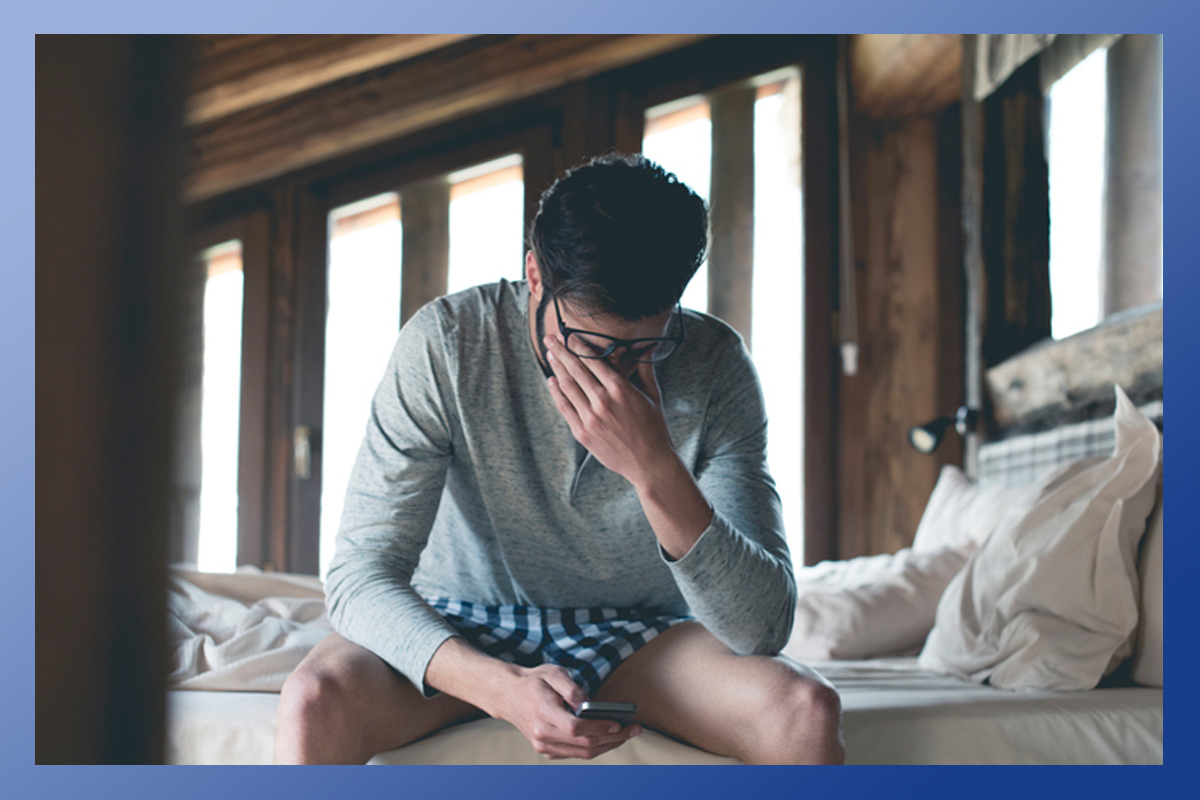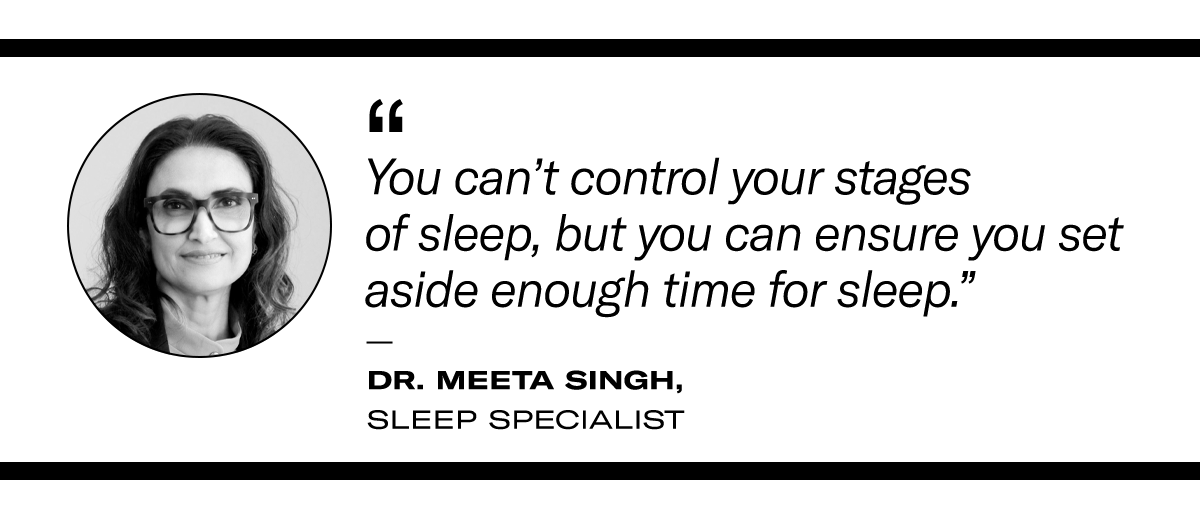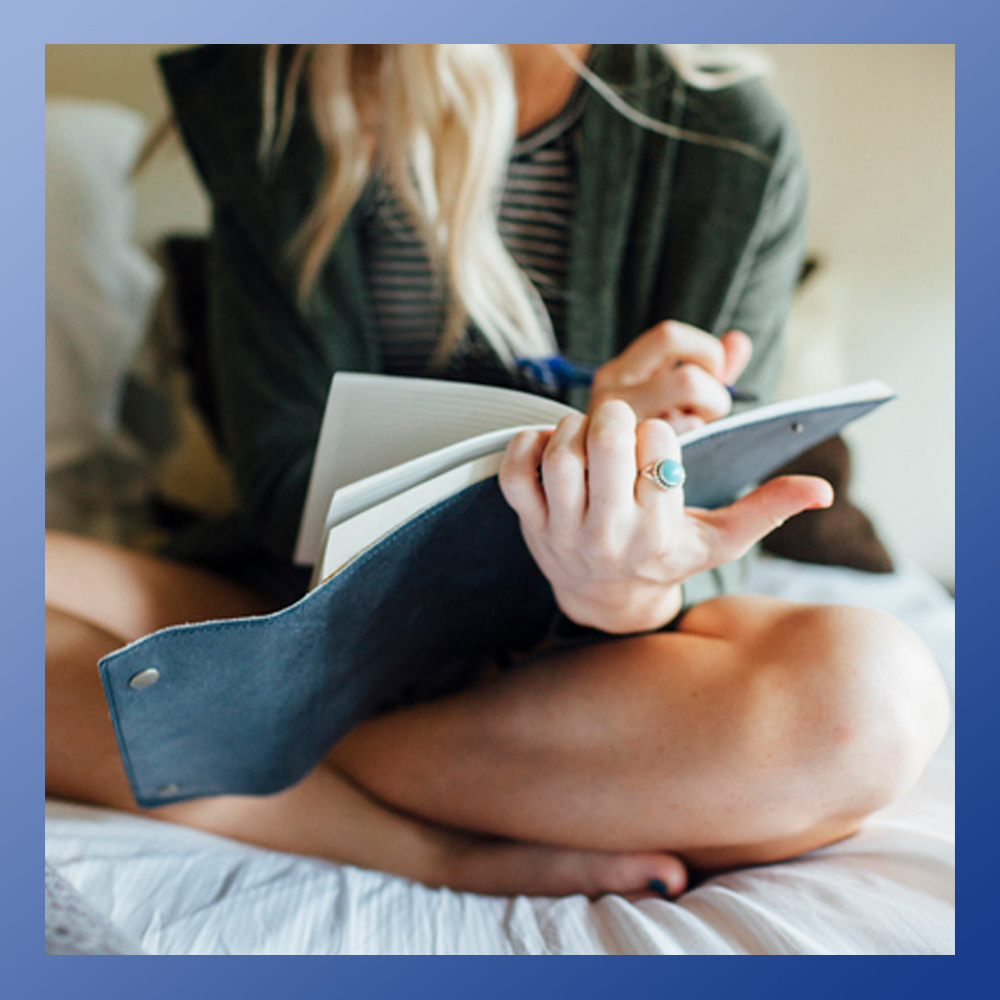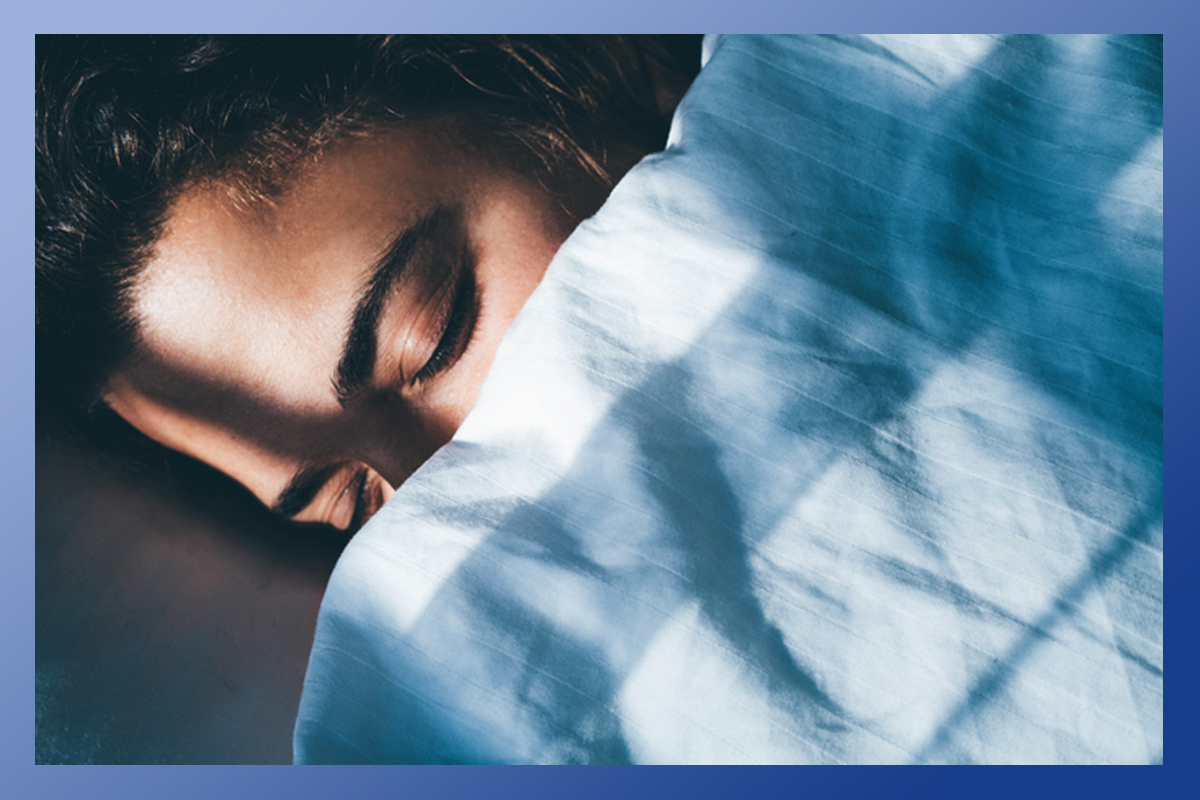Sleep specialist Dr. Meeta Singh shares steps you can take right now to get more restful shut-eye.

Being sleep-deprived is a bit like being drunk; your judgment is the first thing to go.
“When you don’t get enough sleep, your self-perception of how you feel can be impaired, just as when you’ve had three drinks, you’re not the best judge of whether or not you’re drunk,” says Dr. Meeta Singh, a physician and psychiatrist who specializes in the science of sleep. So when assessing the quality of your sleep, it’s better to ask yourself, are you unable to get through the day without reaching for a cup of coffee? Do you fall asleep in meetings, at your computer or behind the wheel of your car? Do you sleep less on workdays than you do on weekends? If the answer to any of these questions is yes, you’re likely not getting enough sleep.
While the internet is flooded with articles about how to get more deep sleep, which is ultra-restorative, and rapid eye movement (REM) sleep, which is critical for learning and the consolidation of memories, Singh says there is nothing you can do to address the specific stages of your sleep; the brain takes care of that automatically.
“The only thing you can do is get more overall time in bed, because deep sleep and REM sleep are a percentage of total sleep time,” she says. “You can’t control your stages of sleep, but you can ensure you set aside enough time for sleep.” Here are eight tips to do just that.
Develop a Wind-Down Routine
When we’re kids, our parents strictly enforce our bedtimes, and have set times for putting on pajamas and reading bedtime stories. This helps the brain create an association with routines for sleep, which helps you fall asleep and stay asleep for the night. Our brains don’t lose our craving for routine as we age, so as adults, we need to recreate those neuro associations.
“A good wind-down schedule should begin at least 30 to 35 minutes before your bedtime and should include quiet relaxation, reading books, or some stretching exercises,” says Singh. “If you meditate or have a spiritual practice, that’s a good time to incorporate it.”
Singh also suggests that things like brushing teeth and removing makeup should be done earlier, to avoid exposure to bright bathroom lights too close to bedtime. To establish a bedtime, first decide when you need to wake up, and work backwards based on your sleep needs. It’s best to stick to that schedule seven days a week, as sleeping in on the weekends to catch up on sleep can have negative effects in the long run.
Create a Bedroom Cave
According to the National Sleep Foundation, your bedroom temperature should be 65 degrees to help your hormones align for optimal sleep; cortisol levels will drop, melatonin levels will increase. Keep the room as dark and quiet as possible and sleep in breathable, cotton clothing. The neon alarm clock numbers two feet from your head? Not good. Consider blackout blinds or a sleep mask, and keep the room uncluttered so your brain has nothing else to think about. “Sleeping in a cold, dark, and quiet room ensures that you’ll make the most of your time in bed,” says Dr. Singh.

Avoid Afternoon Stimulants
Yes, your beloved afternoon coffee is probably interfering with your sleep. Caffein may only take 15 minutes to take effect, but your body is still processing it hours later. “So your 4 p.m. coffee is going to affect your ability to sleep at 10,” explains Dr. Singh. Keep an eye on caffeine that hides in foods like chocolate, ice cream, and pre-workout drinks, Also, avoid big meals—especially those that contain spicy foods—before bed. Your body needs several hours to digest food and eating too close to bedtime means your body will remain active when you want it to rest.
Avoid Blue Light
Three hours before bed, shut down the cell phone, laptop, tablet, and TV because blue-light exposure stunts the release of the sleep hormone melatonin. The brighter and stronger the light to which you are exposed, the greater the effect it will have on your Circadian clock, which regulates the sleep-wake cycle.
“It’s also not just the light that is bad,” explains Dr. Singh. “It’s what you’re doing on the device that creates that light.”
Playing video games and watching movies stimulate the brain and are distracting rather than relaxing. Consider making the bedroom a screen-free zone. Those with interactive devices in their bedrooms are more likely to report “unrefreshing sleep.” And if you can’t power down, blue-light blocking glasses mitigate some of the effects.
Keep a Journal
Too many thoughts racing through your mind? Write them down. Research shows if you park the day’s stressful thoughts on paper, they won’t keep you up at night. Once that argument you had at work, the bills you forgot to pay, and the weekly tasks you need to accomplish are written down, the brain says, “Okay, that’s taken care of, and I can get after it tomorrow.” Decreasing stress before bedtime will ensure cortisol levels drop to allow for proper sleep.
Enjoy a Hot Shower or Bath Before Bed
There’s a reason this works for babies and toddlers, and it can work for you, too. Increasing your body temperature, then decreasing it quickly by going into your cold room helps to induce sleep, which usually begins when the rate of temperature change and body heat loss is at its maximum.


Don’t Sweat the Numbers
While sleep tracking is one of your smart watch’s most compelling features, it’s important not to get too attached to the data. If you feel great but your device says you slept poorly, that information can alter your mood, and vice versa. If you feel you didn’t sleep well, but your device says you did, that information can perk you up.
“You have to look at this data longitudinally,” says Singh. “Look at the trends over the course of a few weeks rather than looking every morning.” Singh also points out that wearable devices can be a slippery slope for those with insomnia. Lack of sleep can increase anxiety and the device itself can trigger more anxiousness.
Take Naps
Adults need seven to nine hours of sleep, and if you’re not able to spend that much time in bed, a nap is a good way to play catch-up, especially in preparation for a workout or event. Singh says the best time for a nap is between 1p.m. and 5 p.m., at whatever hour you feel the most tired. However, she warns that napping within three hours of your important activity can make you feel groggy.
A power nap of 15 to 20 minutes can leave you feeling more alert, awake, and refreshed. A 30-minute nap will give you a bit of deeper sleep, while a full sleep-cycle nap that includes deep and REM sleep requires 90 minutes.
“Bank sleep when you can, get well rested when you can, and use naps to play catch up when you can’t, because we all have limitations,” says Dr. Singh.


